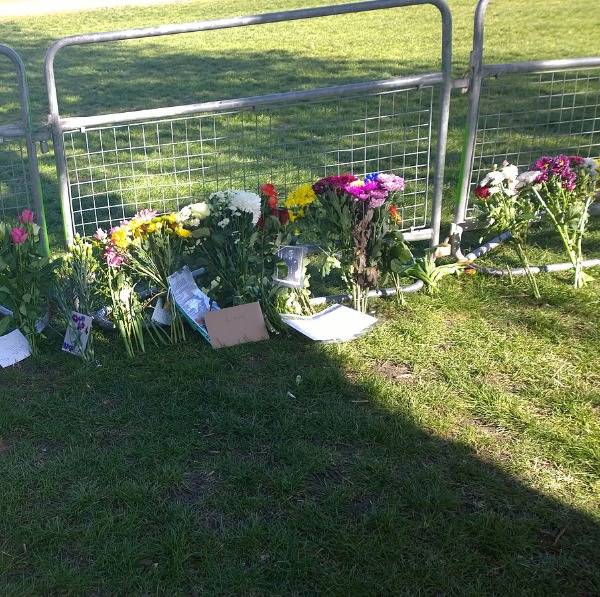
You don’t see old bangers like you used to in the old days. It was fairly common, when I was growing up in the 70s and 80s, to see a coughing, chugging motor being pushed down the road by a gang of friendly passers-by until it spluttered into life on its merry way. The driver would give a wave of thanks, praying they didn’t have to stop at a red light any time soon. These days, new cars are starting to look like spaceships. They definitely don’t have the kind of engines that need a push-start. Recently, I was admiring a friend’s new electric car. I couldn’t see any handles. I suppose you open the doors with your mind.
Earlier this summer, that rare thing happened. My neighbour’s car did need a push. Excited, I called for my children to help. Two pairs of Gen Z eyes looked at me confused. I may as well have told them we were going to put the neighbours in a barrel and roll them down the hill. Neither of my children had ever pushed an ailing car before. In fact, they have had very few moments in their lives when they have had to cooperate with a stranger in any way. They have never even had to get past a grumpy parent when phoning a friend. “We don’t have a ‘Becky’ here, we have a REBECCA!” or “It’s six o’clock! It’s TEATIME! So no, he may NOT come to the phone!”
Before everyone had smartphones, you could stop a stranger and ask them the time, or to take a photo of you, without them thinking they were about to be mugged. Technology, for all of its miraculous usefulness, is slowly eroding little sparks of happy connection we used to have with strangers. This was tolerable, until this isolation of ourselves started to hit our coffee shops – and that is where I draw the line.
Now that I don’t booze like I used to, coffee shops have become to me what pubs used to be. I write in them, meet friends and have friendly chats with staff and other customers, if the mood takes us. In a good local coffee shop, the barista knows how you like your coffee and will pretend to be interested in how your day is going. Faces of other regulars become familiar and it starts to feel like a home away from home. The earliest recorded coffee shops were under the Ottoman Empire. The Ottomans gathered in bookshops and libraries for a bit of social interaction outside the home. Coffee was served to a clientele who wanted to get a bit off their head, but mostly didn’t drink alcohol. These were places where people gathered to debate, exchange ideas or plot revolutions, fuelled by the strong black stuff in tiny cups.
This summer, at the Edinburgh Festival, I went for a coffee with my agent, Jacquie. Time was short. I had a great deal of gossip to get through. We skipped into a nice-looking place, part of a growing chain of achingly “cool” coffee shops pretending to be independents. Jacquie and I were not fussy. It was quiet and we needed to be quick.
“May we have one cappuccino and a skinny latte?” I chirped at the counter. The young barista smiled and pointed to a screen three feet away. “Not here. Order on the screen”. Feeling foolish for imagining we had to order from the human standing next to a coffee machine, we shuffled to The Screen. Our barista amiably drummed his fingers on the counter as Jacquie and I deployed an Oppenheimer-setting-up-his-bomb level of concentration, as we peered at the digital menu. There was a fair bit of “Hang on, I need my glasses” and “Oh no, I’ve ordered seven” as he patiently watched our struggle. Finally, the order pinged on his system. He made the drinks and left them on the counter for us to collect.
But I wasn’t going to let that be our only interaction. The poor man suddenly had a customer passionately telling him all about the Ottoman Empire and declaring his place of work was “The end of our civilisation!” He looked baffled. “We have to all pull together to fight against this,” I implored him as Jacquie gently guided me to a seat. I never got round to telling her my gossip.

